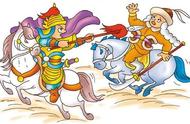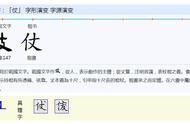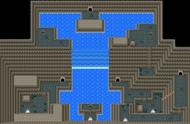Step1考点知识梳理
Section A
I. Don’t eat in class!
Don't 动词原形构成否定祈使句。
Don't talk in class. 在上课时别讲话。
Don't be afraid. 不要害怕。
Ⅱ. rule
1. 作名词:规则;法规;规定
the rules of tennis 网球规则
The school rules must be obeyed. 学校的规定必须遵守。
Don’t break the rules. 不要违规。
2. 作动词:统治、裁决
Who rules this country? 谁统治这个国家?
The judge rules that he must leave. 法官裁定他必须退出。
Ⅲ. be late for 做某事迟到了
==arrive late for
I arrived (was)late for the meeting yesterday. 我昨天开会迟到了。
Ⅳ. fight: fought fighting
1. 作动词: 打仗,战斗,打架,抵抗
People have to fight for their liberty. 人们不得不为自由而战。
He and his wife are always fighting about who will take after the children. 他与他妻子
总是在为由谁来照看孩子而吵架。
2. 作名词:打仗,斗志,战斗力
There’s no fight left in him. 他已经毫无战斗力。
The two boys had a fight. 两个男孩打了一架。
Ⅴ. outside
副词,表示“在外”,“向外”的意思。如:It's dark outside. 外面很黑。
其它用法:
①作名词,指“外部”。如:The outside of the building is white. 建筑物的外部是白色
的。
②作形容词,“外边的”。如:Outside people know nothing about it. 外边的人们什
么也不知道。
③作介词,“外部”,“在...外面”。如:My teacher parked his car outside the gate.
我的老师把车停在门外。
注:outside 的反义词为inside。
Ⅵ. 情态动词have to的用法,意思是"必须、不得不",它侧重于客观上的必要和外
界的权威。
(1)结构:主语+have to+动词原形+其他
(一般现在时,主语是第三人称单数时,用has to;句子是过去时,用had to.)
如: Tom has to practice the guitar every day.
上周一,我不得不早上5 点起床。
(2)否定形式:主语+don't have to+动词原形+其他“不必”
(一般现在时,主语是第三人称单数时,用doesn't have to. 句子是过去时,用didn't
have to)
如:Nick doesn't have to wear a uniform.
我们不必马上完成作业。
(3)疑问句:Do (Does 或Did)+主语+have to +动词原形+其他
如:Do you have to stay at home on weekends? Yes, I do. / No, I don't.
昨晚,他不得不11 点前上床睡觉吗?
Ⅶ. 情态动词can的用法。
1 表示能力,"会""能" Can you play the guitar? I can dance and sing.
2 表示允许、许可,"可以"、"能" Can the students run in the hallways?
We can eat outside. Can I come in?
注意:can 和have to 的区别,can 没有人称和数的变化。
Ⅷ. else
1. 作形容词,表示“别的,其他的”
Ask somebody else. 问问别人。
Would you like something else? 还要再要些别的吗?
2. 作副词,表示“另外,其他”
When else can we come again? 我们什么时候还能来呢?
We went to the museum and nowhere else. 我们到博物馆去了,其他什么地方也没去。
Section B
I. on school nights 在上学日的晚上
We shouldn't watch TV too late on school nights. 在上学的晚上我们不应看电视看得
太晚。
Ⅱ. too many “太多”的意思
Too many cooks spoil the broth (肉汤). 人多误事。
He can't stand too many rules. 他忍受不了太多的规矩。
Ⅲ. in bed 表示“在床上,卧床”的意思。
The old man sat up in bed. 这位老人在床上坐起来。
Don't read in bed. 不要躺在床上看书。
Ⅳ. by的用法:
by 为介词=not later than “不迟于…”。
如:I'll be back by 6 o’clock.我最迟六点钟回来
Ⅴ. No talking! “不要说话!禁止交谈!”
No 名词或动名词(doing)“不要做某事”与Don't do 的用法相似。
No food! = Don't eat food here!
No smoking!= Don't smoke here!
Step2重点难点解析
难点一、hear/listen/sound的区别
1. hear “听说”,侧重于“听”的内容
I'm sorry to hear that you are ill. 听说你病了,我很难过。
I never heard such an interesting story. 我从来没有听说过这么一个有趣的故
事。
2. listen“听”,侧重于“听”这一动作
Listen to me carefully. 认真听我说。
The children like to listen to music. 孩子们喜欢听音乐。
3. sound “听起来”,它是系动词,后面接形容词
That sounds great. 那听起来真不错。
It sounds like fun. 听起来了挺有趣。
难点二、must和have to 的区别
1. 都可以翻译为必须,但是have to 用于强调客观需要“不得不”;must 表
示主观看法“必、应该”
We’ll have to ask Zhang Hong instead. 我们必须要去问张鸿了。
We must work hard at school. 在学校我们必须努力学习。
2. have to 有人称、数和时态的变化,而must 只有一种形式。
3. 在否定结构中: don't have to 表示“不必”
mustn't 表示“禁止,决不能”
You don't have to tell him about it. 你不一定要把此事告诉他。
You mustn’t tell him about it.你一定不要把此事告诉他。
难点三、too many/too much/ much too 的辨析
1. too many 的中心词是many, too 用来修饰many,用法与many 相同,用来
修饰复数可数名词
He's got too many questions to ask you. 他有很多问题要问你。
They bought too many eggs yesterday. 昨天他们买了太多的鸡蛋。
2. too much 的中心词是much,用法与much 相同,用来修饰不可数名词。
We both have too much work to do. 我们俩都有很多工作要做。
She spent too much money on clothes. 她花太多钱买衣服。
The teacher told him not to spend too much time playing games. 老师叫他不要
花太多时间玩游戏。
3. much too 的中心词是too, 用来修饰原级形容词和副词;much 在其中是用
来修饰too 的。
You're walking much too fast. Slow down. 你走得太快了,慢点。
I'm afraid that this cap is much too big for me. 这顶帽子我戴恐怕太大了。
It's much too cold outside.外面太冷了。
难点四、祈使句的用法
祈使句表示请求、命令、建议等等。谓语动词一律用原形。句子中通常不用主
语( 宾格),用降调。
一.类型
① V。Do it like this please.
② B. Be 表语Be careful !
③ L. Let sb do sth . 注意: Let's 包括对方,Let us 不包括对方。Let's go,shall we?
Let us go,will you?
有时,为了加强语气,可以在动词之前加do e.g. Do study hard.一定要努力
学习。
二.否定的祈使句句型:Don't 动词原形~
Don't swim in the river. Don't be late.别迟到。
注意:表示禁止时,尤其是标语等也可用“No 动名词”来表示。No smoking.
No parking.禁止停车。
三.祈使句与陈述句的改写
1.祈使句=You must …(陈述句)Come here .过来。=You must come here.你必
须过来。
2.Please 祈使句=Will you (please) ~?(陈述句)
Please help me. 请帮帮我。=Will you (please) help me? 你愿意帮我的忙吗?
Come here on time, please. 请准时到这儿。=Will you (please) come here on time?
请你准时到好吗?
,












